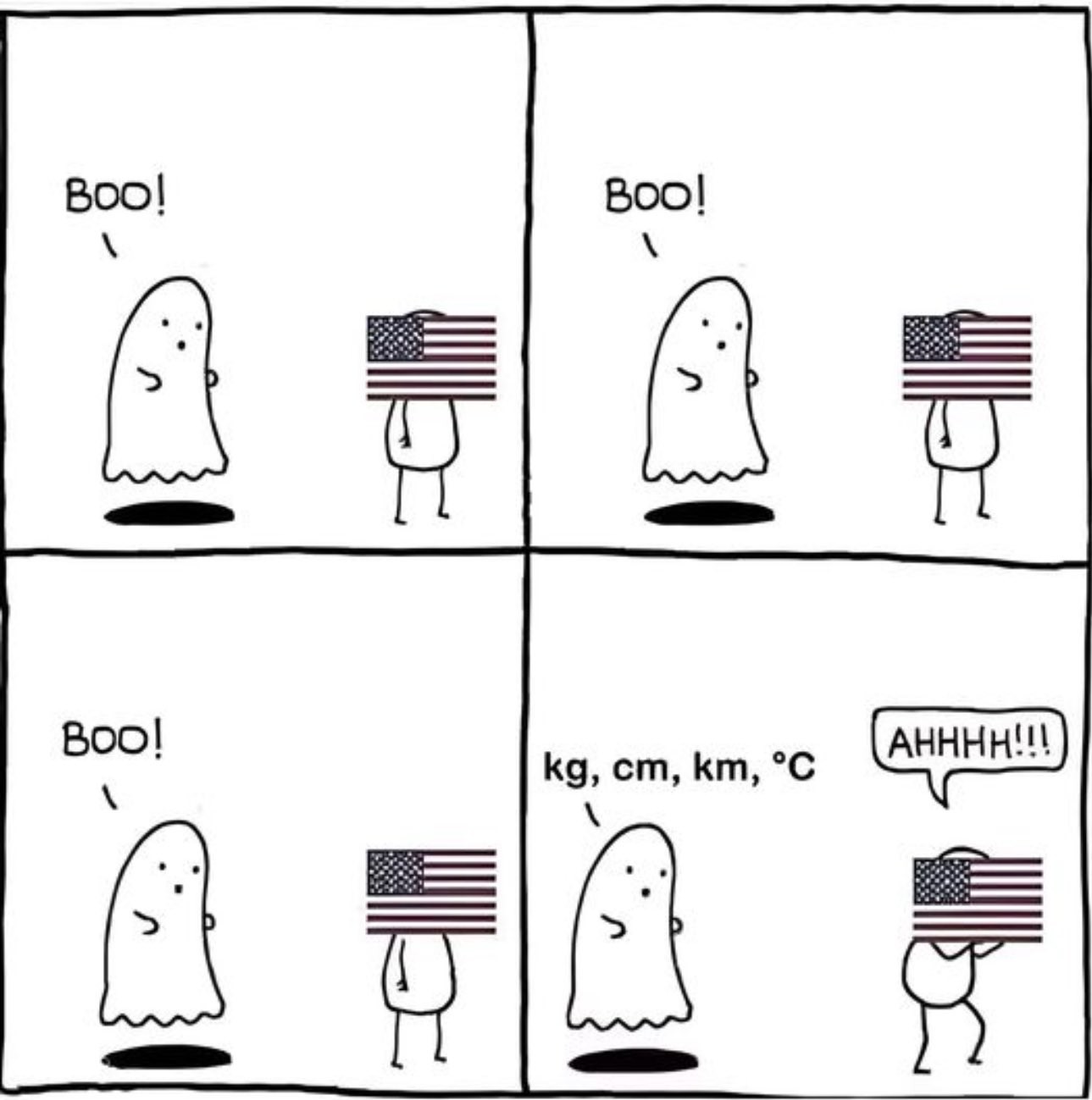this post was submitted on 29 Oct 2023
1116 points (95.4% liked)
Memes
50317 readers
1190 users here now
Rules:
- Be civil and nice.
- Try not to excessively repost, as a rule of thumb, wait at least 2 months to do it if you have to.
founded 6 years ago
MODERATORS
you are viewing a single comment's thread
view the rest of the comments
view the rest of the comments

As a celsius user I have absolutely no need for fahrenheit. It needs more numbers when there is no need for more precision. Half a degree C is barely even noticable.
It's one of those things that truly and honestly just doesn't matter. Celsius makes more sense if you think about water freezing at 0 and boiling at 100, but beyond that it really doesn't make a big difference.
what happens at 0 F?
I mean 0 C is when the water change its state, but then what happens at 0 F?
Nothing in particular, it's an arbitrary starting point. But that's really not a good reason to knock it.
Does water actually freeze at 0 celsius? It depends on the air pressure, right? I guess 0 celsius is the freezing point of water at sea level, but air pressure's not consistent at all. I guess maybe it's the temperature water freezes at the average air pressure at sea level? I assume that's the case.
The point I'm trying to make is the Celsius isn't super rock solid either, and it really doesn't affect anything if water freezes at 0 or 32 degrees. The best argument for celsius is that it's standard, but that doesn't make necessarily make it better.
If we really cared about having a rock-solid starting point, we'd use Kelvin because you literally cannot go below 0.
yeah I was looking for something like "at 0 F something happens" as in Centigrades you can be sure that at 0C and with 1atm the water will freeze, instead of something arbitrary, so you can compare calibrate instruments
Well it doesn't really matter what you were looking for lol. I promise you Fahrenheit thermometers are calibrated same as Celsius ones.
The lower point of Fahrenheight is near the freezing point of brine (salt water) which freezes at -6 F (-21 C).
It was designed around what the coldest day at the time of its invention could get and the 100F was marked around how hot the hottest day of the year at the timr would get. Hence its choice to scale 0-100 to local weather vs celcius' choice to use kelvin and offset it to standardize it to pure water.
actually water melts at 0 deg it freezes below zero.
Freezing/melting does not have hysteresis
thanks for teaching me a new word :)
We live in a world rich in water. When the overnight temperature is below zero, we have frost, for example
Yeah, same here. When the temperature dips below 32 we get frost
I use both equally well. Since both of them are base 10, no difference whatsoever. You just know the feeling of 70F or 21C.